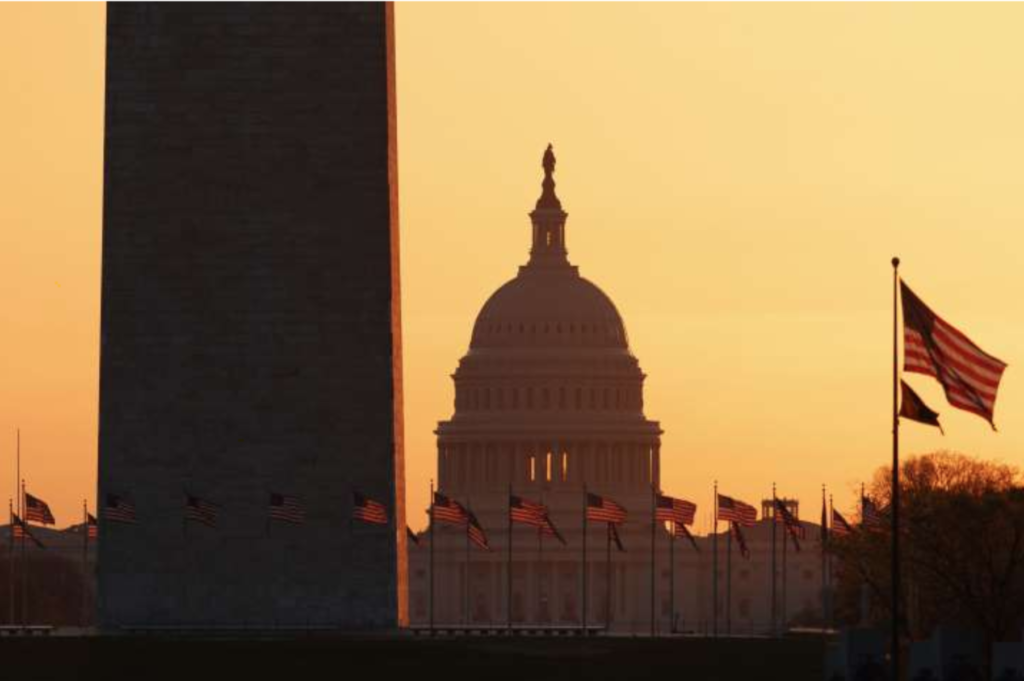“Government is not the solution. Government is the problem.”
This quote from President Ronald Reagan from his inaugural address might be one his most famous, which is really saying something.
The reason for its popularity isn’t just due to Reagan’s communication skills. At its core, it speaks to an idea that has become central to traditional libertarianism, as well as movement conservatism over the past few decades: that the government has little role outside of traditional national security. While the policy results of this line of thinking are not always consistent, even from those who spout it, the power of this way of thought is undeniable.
The view of “government is the problem” doesn’t really hold up in reality, as seen with the wave of chaos evoked by the coronavirus, which is hitting all fronts, from public health to the economy. This pandemic has clearly shown how this view of the government has once again been proven wrong.
The disarray of the virus has certainly been the nail in the coffin for the seemingly booming economy of the past, but what the virus really showed was the frail foundations of that boom.
For too long, the government has been seen as nothing more than a problematic leviathan which only undermines the economy when it gets directly involved.
Most are still taught and cling to the conflict between the public and private spheres, or the different processes of the “market,” whose ability to control itself often sounds magical.
These ideas are outdated, with people stuck in their old ways or others only peddling them in the name of bad faith for self-gain.
In reality, the government has a clear and important role to play in the everyday function of the economy, even if it isn’t always noticed.
For one, without the government, there would be no economy or “market.” It is the rules set up by the government that set up the very guard rails of what is or isn’t in the economic “market.” To try to take the government out of the economic “market” would be a fool’s errand.
The government also plays an active role in setting up and running the welfare programs that should be doing more to provide a strong foundation for the economy and the people that make it up. Without these programs, there would be even greater instability in an economy that is already too prone to disruption.
In reality, while it is impossible to solve all the problems facing the U.S. during this pandemic, that lack of greater investment in the US welfare system due to outdated ideas has certainly made things worse.
If the U.S. had better baseline sick leave programs, higher wages for everyday people, cheaper healthcare, and more money spent on other important programs or departments (like the health department, for example) than it has currently, the situation would be far better.
Right now, the government is taking greater action to put more money into the economy, and it is a start—even if it isn’t going to all the right places or enough money to solve the underlying problems. More will need to be done, especially if this pandemic continues.
Once this is over, sadly, the old paradigm will remerge, where spending a dime to help someone is viewed as wasteful or a dangerous entitlement.
That shouldn’t be allowed. Too often the government only attempts to do something when things hit the fan and doing nothing is impossible.
The coronavirus saga, while being a public health nightmare, has also proven to be an economic parable. It, like other events in the past, shows that government is the solution, not the problem, and hopefully we hold onto that lesson this time.
bmh6dw@mail.umkc.edu









Cheryl Morton • Sep 29, 2020 at 3:52 pm
I’m surprised by various polictial parties and movements who are against government intervention, (I wonder how many returned their stimulus checks?).The governement IS the invisible hand. They are vital to our country’s economic well being!